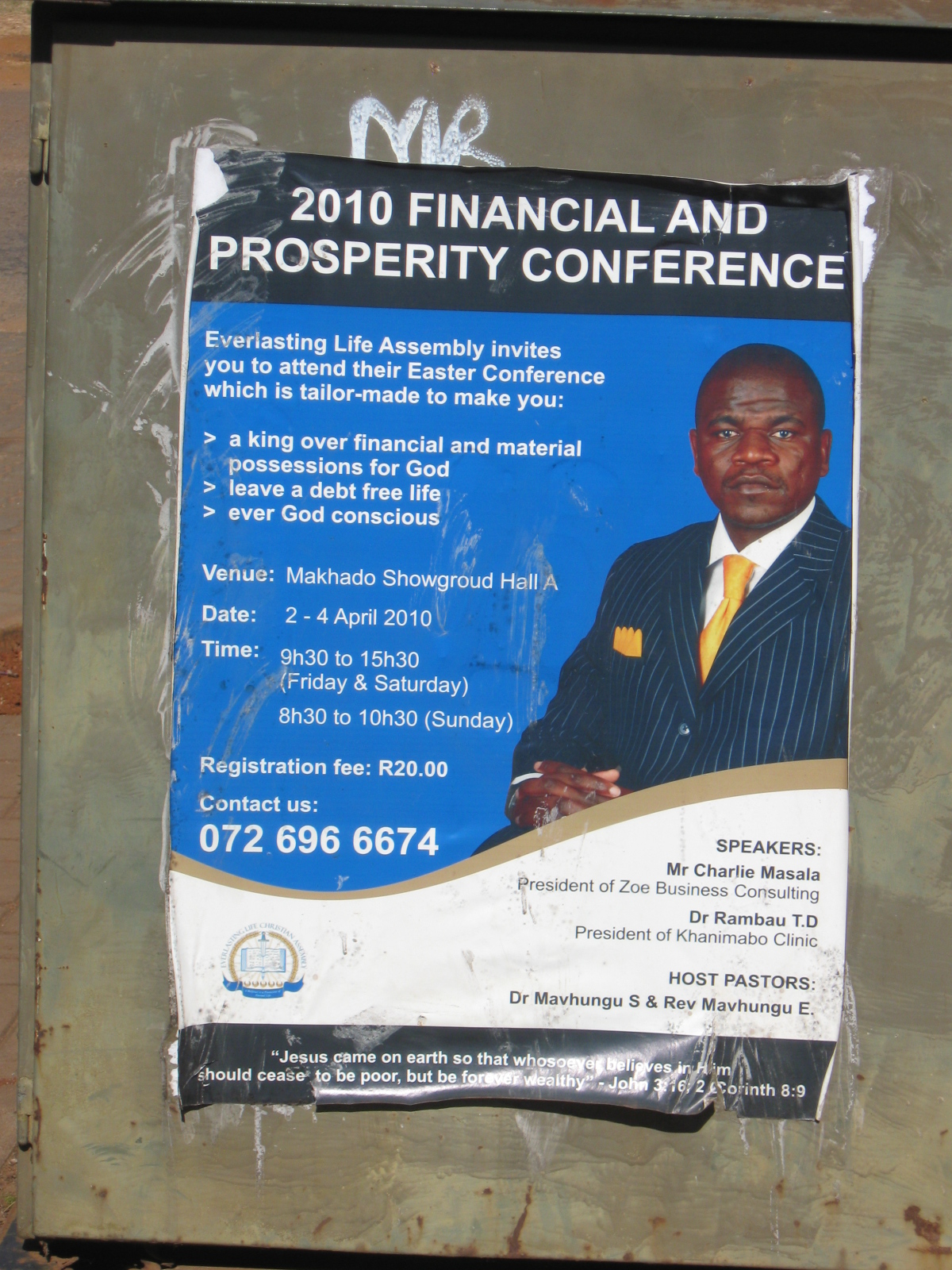In Louis Trichardt on Wednesday 22 August 2012, my bakkie needed some help. I struck up a conversation with a man from Thohoyandou who was also waiting at the workshop. The man had a job and a nice car. Not five minutes after this conversation, I jotted down the dialogue as exactly as I could remember it on paper in my bakkie.
Man: Just seconds after meeting me, he asked me if my church gave me a lot of money.
Seth: “You haven’t even known me for two minutes, and you are already asking me about money.”
…
Seth: Some comment about how we must love Christ more than money.
Man: “My pastor loves money too much.”
…
Man: “At my church, they cast out demons every week.” He went on to tell me about the miracles that their church does because Jesus said we will do greater works than His.
Seth: “The greater works are people leaving their sin and turning to Jesus Christ in faith. At my church, we only have about 30 people, but they truly love Jesus more than money. The real greater works are when a young 21-year old man who is committing fornication and looking at pornography, gives it up because he loves Christ more. That is the greater works.”
Man: “That [referring to young men genuinely leaving their sins] is impossible.” He repeated this line with “No, no, no.” several times.
…
Man: “At my church, if you miss one month of not paying your tithe, they will phone you. They will come see you.”
Seth: “That’s because they love money more than anything else.”
…
Man: “You should tell your people at church to pay the tithe. They will give you money.”
Seth: “But I don’t want their money, I want their souls to be saved. I don’t love money.”
Man: “You must love money.”
…
Seth: “1 Timothy 6:12 [I got the reference wrong while talking to him, it’s actually 6:10] says the love of money is the root of all evil. But I’ve heard a pastor saying that we should love money. Who is right: the Bible or the pastor?”
Man: “The pastor is right.”
Seth: “You’re contradicting the Bible.”
…
Seth: “When Jesus comes back the second time, 2 Peter 3:10-12 says that He will destroy the earth with fire. That means that your nice car and my bakkie will all be destroyed. So we must live for eternity, we must not love money. Everything we do should make us happier in eternity, not here on this earth.”
Man: “There is no life after this. This life is all there is.”
Seth: Some expression of shock and total disagreement.
Man: For the second time standing not one meter from me, “There is no life after this. This life is all there is. [Pause.] No, I’m lying.” He then turned and began walking away without another word.
I have had similar conversations numerous times, though admittedly not all are as openly outrageous as this one.
Like this:
Like Loading...











